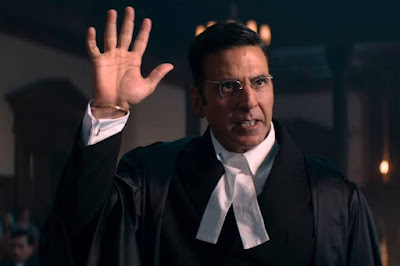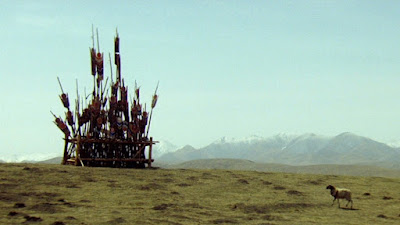Manoj Kumar, who has died aged 87, was a suavely sincere star of Bollywood’s post-War golden age who branched out in the late 1960s as a writer-director of considerable note. Even at his most prolific, he rarely lost his eye for a worthy script or project, and the lived-in patriotism he evoked in his directorial debut Upkar (Favour, 1967) ensured he was often fondly referred to thereafter by his protagonist’s name “Bharat” – a poetic term for India itself.
Yet Kumar’s appeal expanded far beyond his homeland. The London-set Purab Aur Pachhim (East and West, 1970) – which he directed, starred in and co-wrote with his wife Shashi Goswami – proved a runaway success with diaspora audiences, playing in British cinemas for 50 weeks. Its total take of £285,000 set a record for an Indian film at the UK box office, one that would not be overtaken until the Salman Khan blockbuster Hum Aapke Hain Koun…! (1994).
After a bizarre debut, playing an elderly beggar in Fashion (1957), Kumar proved a willing foil to established actresses, courting Sayeeda Khan in Honeymoon (1960) and Kanch Ki Gudiya (Glass Doll, 1961), Asha Parekh in Apna Banake Dekho (Try Making Your Own, 1962) and Mala Sinha in Hariyali Aur Rasta (The Greenery and the Road, 1962). Much admired for his professionalism, his reputation grew so rapidly among producers that he was signed for six more films while Kanch Ki Gudiya was still shooting.
Yet most of these titles fizzled out commercially, and Kumar insisted he had divine intervention to thank for making him a star. At the urging of the actor Om Prakash, Kumar offered a prayer for success at the Haji Malang shrine. On the walk home he encountered a white-clad stranger with a long flowing beard who told him “You will taste success from the 31st”. This was the date of Hariyali Aur Rasta’s premiere; the film became Kumar’s first major hit.
Throughout the Sixties, Kumar worked at a ferocious rate. Further romances followed, such as Himalay Ki God Mein (In the Lap of the Himalayas, 1965, a reunion with Sinha) and Do Badan (Two Bodies, 1966, with Parekh), but he alternated these with the socially minded Grahasti (Family Life, 1963), the ghost story Woh Kaun Thi? (Who Was She?, 1964) and the wild murder-mystery Gumnaam (Anonymous, 1965), loosely based on Agatha Christie’s And Then There Were None.
Emerging as a polymathic talent, he not only rewrote Woh Kaun Thi? but designed its poster; he also claimed to have directed part of Shaheed (Martyr, 1965), where he played the anti-colonial revolutionary Bhagat Singh. Its enthusiastic reception was pivotal to his flourishing as a writer and director. The film drew backing from Prime Minister Lal Bahadur Shastri, who pledged to watch 10 minutes at an early screening but became so engrossed he sat through the film entire. A frantic Kumar instructed the projectionist not to honour the intermission lest the PM walk out.
Manoj Kumar was born Harikrishan Giri Goswami in Abbottabad on July 24, 1937 to H.L. Goswami and wife Krishna Kumari. It was a tumultuous childhood: Kumar’s younger brother died in hospital after Partition riots caused doctors to abandon their post, and the family relocated to Delhi. After graduating from Delhi University, Kumar moved to Bombay, where he took his pseudonym from his idol Dilip Kumar’s character in Shabnam (1949) and supported his acting career by writing for Ranjit Studios, earning ten rupees per scene.
That apprenticeship served him well in his directorial career, officially launched with Upkar, a film inspired by PM Shastri’s slogan jai jawan, jai kisan (“hail the soldier, hail the farmer”) and centred on a hardy farmer who enlists to fight in the 1965 Indo-Pakistan conflict. Another notable box-office success, it won the Filmfare Awards for Best Dialogue, Best Director and Best Film in 1968.
Despite dynamic use of sound, Shor (Noise, 1972) proved less successful, but Roti Kapada Aur Makaan (Food, Clothes and Shelter, 1974) went some way towards integrating the social themes of the independent “parallel” cinema into the crowdpleasing mass movie and afforded an early role to future megastar Amitabh Bachchan. Kranti (Revolution, 1981), a three-hour epic on the struggle for Independence, became India’s biggest hit of the entire 1980s.
After struggles with depression following his father’s death in 1983, Kumar never quite regained his previous sure touch. Clerk (1989) was a flop; Jai Hind (Long Live India, 1999), Kumar’s attempt to launch his son Kunal to stardom, proved a miserable experience, taking seven years to complete. During that time, Kumar quit acting, making his final appearance in Maidan-E-Jung (Battlefield, 1995); he planned a comeback in his eighties with Ik Onkaar (One God, 2018), but the film was shelved.
He received the Filmfare Lifetime Achievement Award in 1999 and two of India’s highest arts honours, the Padma Shri (in 1992) and the Dadasaheb Phalke (in 2016). In 2013, he sued latter-day megastar Shah Rukh Khan, who’d recreated Kumar’s signature move of extending his fingers over his face in Om Shanti Om (2007); this homage had been deleted from the Indian cut at Kumar’s behest but was left in for a Japanese rerelease. (The case was eventually withdrawn.)
For many, though, Kumar’s abiding image was that of Bharat, the hearty country boy willing to put his life on the line for India: “The public in our country is so kind-hearted that when they find something genuine and good, they shower it with immense love and respect... I was just a simple boy, but you all made me Bharat. You obliged me and also placed a huge responsibility on me to live up to that image.”
He is survived by his wife Shashi and two sons, Kunal and Vishal.
Manoj Kumar, born July 24, 1937, died April 4, 2025.














